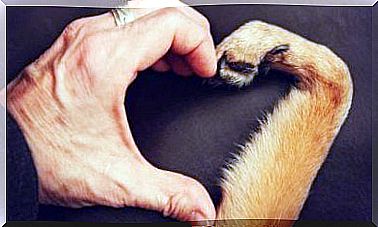Has Anyone Hurt You? Here Are 5 Questions To Handle This Situation

When someone harms us, the harm and resulting pain often comes with conflicting feelings. Sadness, anger, disappointment… Sometimes, we even feel guilt or we come to assume the evil received as an immanent consequence of a past action for which we were responsible.
When the people who hurt you are the people you love, the feelings increase in intensity and can form a real mental storm. Remember that in any complex situation the first thing to do is to calm down so that you do not act thoughtlessly and, perhaps, create more difficulties.
The key to preventing such a situation from escalating, often unnecessarily, and creating new problems, is to calmly analyze what happened. There are some questions that can help you do this, and thus allow you to deal with the situation more appropriately. Here are five.

1. Does this person who hurt you really understand the situation?
If you’ve been hurt, you will tend to judge the other person’s behavior too one-sidedly. You will attribute the motivations for his behavior to his lack of values or his desire to harm you. In the “heat of the moment”, the rejection of the harm received is stronger than the dispassionate perception of what happened.
So it’s good to ask yourself if the person really understands the situation: is they aware of the harm they have caused you? Did she really mean to hurt you, or did she act without thinking? Did she act calculated, or was she reckless? The answers to these questions can help you better understand what happened.
2. Is there a problem or character flaw that could explain his behavior?
It is important to consider the context in which the events took place. Behavior that occurs in the middle of a complex situation does not have the same meaning as behavior that occurs in the middle of an everyday situation. Certain pressures and difficulties can make a person more likely to act inappropriately.
It is also possible that his inappropriate behavior is repetitive and therefore due to a character flaw. Do you identify and understand this character flaw? Do you think this person is aware of it or has tried to overcome it? Has she succeeded to some extent? By answering these questions, you will have a clearer idea of why you were injured.
3. Is the person who has hurt you contradicting or exaggerating?
If you have been hurt, it is important that you do not fall into the trap of victimization: do not view others as executioners. Likewise, you should not allow yourself to think that you are solely responsible for what happened and that others have acted reasonably.
To handle these situations well, it is best to reach a point of equilibrium. For this, it is necessary to observe whether the other person contradicts himself: does he act in a very different way depending on the case?
Is she asking for something that she doesn’t give? It should also be considered whether their reasons or alleged arguments for acting the way they do are based on an exaggerated view of the situation.
4. How do you feel and how could you convey it?
The previous questions were aimed at arousing empathy towards the other. Put yourself in his shoes to try to understand his reasons, his motivations and his limitations. Once done, it is now also necessary to get in touch with yourself to identify the feelings that this situation causes in you.
If those who hurt you are important people to you, it’s good to think about how you can convey your feelings without hurting them. Ask yourself if you want to hurt or convey a message. The best thing to do is to refer to the feelings you are having, without judging the behavior of the other.

5. What can you do to keep it from affecting you?
It is possible for the wound to heal for a long time, especially if it is deep. It can affect your work, your relationships with others, and even the way you eat and sleep.
Dealing wisely with this type of situation means making sure it doesn’t affect you more than it should. It is worth looking for ways to dispel the discomfort that such a situation can leave you.
Find a way to regain your emotional balance and put a limit to the damage you have received. A pleasant walk, a pleasant activity, or a healthy conversation can help.
If you have been hurt, the solution is not to suffer the damage passively, nor to focus your energy on revenge. The right thing to do is to handle the situation in a reasonable way and to stop the effects of the negative situation, both for yourself and for the person who has caused you harm.










